 Your new post is loading...
 Your new post is loading...
Could bad PR pose an existential threat to one of tech's highest-flying companies? If Lyft's fortunes are any indication, Uber might have reason to worry. While Uber has been dealing with bad headline after bad headline, Lyft has been courting riders and polishing its image. For example, when Uber was facing a #DeleteUber campaign over CEO Kalanick's participation in a business advisory council for US President Donald Trump, Lyft was responding to Trump's temporary travel ban targeting seven Muslim countries by announcing that it would be donating $1m to the American Civil Liberties Union. Is Lyft's cleaner image winning over consumers?According to Bloomberg, Lyft's ridership and bookings "surged" in the first quarter of the year and according to fundraising documents Bloomberg obtained, the company is beating its internal targets. The documents revealed that Lyft's gross bookings in Q1 grew to $800m, more than double what they were in Q1 2016, and total ridership in February was 137% higher than February 2016....
The Trump era is a rough time for journalists. No matter how much they’re provoked, if they show too much bias and disrespect, they could lose their jobs, even for a single tweet. That’s what happened to Julia Ioffe at Politico, and it’s a revealing case study. I’ll get to what Ioffe did in a moment. But first, let’s have a look at the email Politico’s editors Carrie Budoff Brown and John Harris sent to their staff when they fired her: "You will remember the note from John and me a few days ago in which we emphasized that POLITICO journalists are representing the publication at all times and on all platforms, and must present themselves accordingly. We also emphasized that the power of POLITICO comes from our independent reporting and analysis. Gratuitous opinion has no place, anywhere, at any time – not on your Facebook feed, your Twitter feed or any place else. It has absolutely zero value for our readers and should have zero place in our work. Julia Ioffe’s tweet this afternoon about President-elect Trump – currently and understandably racing across social media – is a clear example of the opposite of what we were talking about." This is as clear as it gets. If you’re trying to make a point, this is how you make it: no equivocation, no jargon, and direct, first-person statements....
Never ruin an apology with an excuse." – Ben Franklin
In less than 24 hours, two of the biggest stories in the world involved some kind of "apology" for offensive behavior and/or lying. Last night in Charlotte, North Carolina, the notoriously unrepentant Donald Trump shocked observers by expressing "regret" for words that "may have caused personal pain." And this morning Ryan Lochte issued a widely criticized apology for "not being more careful" with how he described an incident in which he lied about being held up at gunpoint in Rio de Janeiro.
Neither of them qualified as a true apology since they both offered an excuse for their behavior, failed to give a detailed account of what happened, failed to acknowledge or specify the hurt and damage they’d caused, and didn't take responsibility for the situation.
A proper apology is "an exercise in honesty, accountability, and compassion," says interfaith minister Lauren Bloom, the author of The Art of the Apology. Of course, it's difficult and nerve-wracking and fraught with tension. But it's the right thing to do. So above all, be sincere: "It's the essence of an apology."...
Back in 2004, media and TV personality Martha Stewart was sentenced to five months in jail for obstructing a federal securities investigation. To pass the time during her incarceration, Stewart did what she does best: cooking and crafts. Speaking at a Daily Mail brunch session at the Cannes Lions advertising festival on Thursday, Stewart said the food inside was around three years past its expiry date. "That's why I made jam out of the crab apples on the trees," she added. Aside from making jam, Stewart also turned her hand to ceramics. As a child she'd go to ceramic classes at the weekend, so she quickly signed up to a ceramics class in prison too, at a place called Alderson....
Sometimes the smartest brands use content marketing in a remarkably dangerous and stupid way. Case in point: Coca Cola's recent sneaky gambit, employing nutritionist bloggers to sell the iconic soft drink as a heart-smart snack.
Last month, nutritionists paid by the beverage mega-giant were touting mini-cans of Coke as a healthy snack option in online columns, radio commentary and print. Making the whole thing particularly odious, this paid content was insinuated into stories about February's Heart Health and Black History Month.
Without shame, the world's largest beverage company has admitted to paying to push mini-cans of Coke as a part of a healthy diet, arguing the marketing ploy is simply a version of “product placement.” A Coca-Cola spokesman told the Associated Press that the semi-stealth effort was what virtually all brands do to shine a positive light on their respective products....
Less than two months after getting hired to be PayPal's new director of strategy , Rakesh "Rocky" Agrawal took to Twitter to insult some of his fellow employees. His tweets started at about 1 a.m. and contained numerous spelling errors.
Within hours, PayPal said he was no longer at the company. However, Agrawal says he quit his job at PayPal before he published the tweets.
According to his Twitter account, Agrawal was at Jazz Fest in New Orleans when he started calling out PayPal employees....
|
Wittingly or not, major global corporations are helping fund sites that traffic in fake news by advertising on them.
Take, for instance, a story that falsely claimed former President Barack Obama had banned Christmas cards to overseas military personnel. Despite debunking by The Associated Press and other fact-checking outlets, that article lives on at "Fox News The FB Page," which has no connection to the news channel although its bears a replica of its logo.
And until recently, the story was often flanked by ads from big brands such as the insurer Geico, the business-news outlet Financial Times, and the beauty-products maker Revlon.
This situation isn't remotely an isolated case, although major companies generally say they have no intention of bankrolling purveyors of fake news with their ad dollars. Because many of their ads are placed on websites by computer algorithms, it's not always easy for these companies to steer them away from sites they find objectionable....
Mylan and its CEO Heather Bresch are under fire. It raised the price of its EpiPen product — an essential protection for people with life threatening allergies — by a factor of five in the last eight years. Mylan’s statement defending itself clarifies what it’s doing — providing rebates — but evades the main issue of why it increased the price in the first place. Here’s the dialogue between Mylan and the public, in a nutshell: Public: Why is this thing so hellishly expensive? Mylan: We’ll help you afford it with coupons and rebates. Public: Why is this thing so hellishly expensive? Mylan: We’re on your side. It’s the insurance regulations. Public: Why is this thing so hellishly expensive??? RtMylan: We even give some away to schools!S So Mylan’s position is that it won’t explain the massive price increase on a product where it has a monopoly on a generic medication product that millions of people could die without, a product that’s essentially unchanged from past years....
Kmart was once one of America's leading discount retailers. But its sales have been tanking for years, and now it's closing dozens of stores. At its peak in 2000, Kmart raked in $37 billion in sales and had 2,156 stores. Since then, Kmart's sales have dropped 72% to $10 billion. It now has just 941 stores, with plans to close nearly 70 more by next month. We went to a Kmart store in Richmond, Virginia, to find out why it's losing customers....
Every business must serve a social purpose”. These are not the words of a social campaigner or a politician; they are the words of a banker, Ashok Vaswani, the CEO of Retail and Business Banking at Barclays, one of the world’s largest banks. Barclays has been involved in at least one major trading scandal and holds the dubious honour of the most fined bank in Britain. There will be some people who will treat his words with understandable cynicism but that would be to miss the point.
The point is not whether the words are sincere or not – it is that they should have been said at all. Banks are concerned with the control of money, why should they concern themselves with any purpose beyond that? The reason is that society is demanding they do. When banks first started they fulfilled a social need in the community, to enable ordinary people to fund their ambitions. Over the years banks forgot that purpose and focused most of their efforts on funding their own ambitions through obscene profits, often at the consumer’s expense. The bubble burst in spectacular fashion with the downfall of Lehman Brothers in the US and RBS in the UK.
It isn’t just the banks that have lost their way. Now it’s critical for any business to demonstrate it has a purpose before, and beyond profit; that it seeks to improve the lives of its customers as a primary goal. Failure to have such a purpose, to be clear about it and to ensure it directs everything you do, will lose customers, employees and ultimately business value....
Sept. 11 is a difficult time for brands to take on Twitter. While some industry observers applaud brands that try to inject themselves into social chatter, more often than not, tweets can end up as fiascoes in an otherwise well-meaning flurry of posts.
Already, many marketers' 9/11 efforts today have ended up as #brandfails. CVS Pharmacy posted a photo of Manhattan with two lights representing the Twin Towers and a logo in the bottom corner. The tweet was swiftly removed after people started complaining about the branded skyline, although several Twitter users managed to screengrab the tweet. The Vitamin Shoppe and Burlington Coat Factory posted similar tweets this morning and have, at press time, kept them live.
Then there are sex brands like Official Fleshlight and Brazzers weighing in on Sept. 11, which seems totally out of place. And a tweet from Birmingham, Ala., tie company Tied to the South requested a retweet for every death caused by the terrorist attack. The latter was quickly deleted. Build-A-Bear also removed a tweet this morning of a teddy bear in fatigues after getting some flack on Twitter....
|



 Your new post is loading...
Your new post is loading...



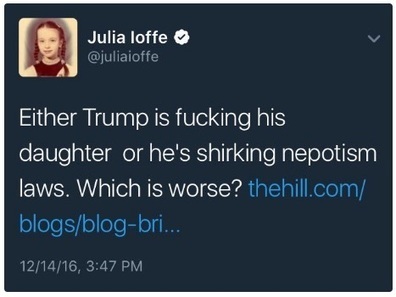
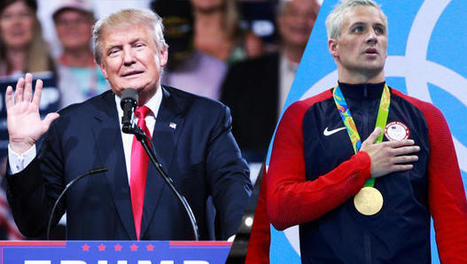
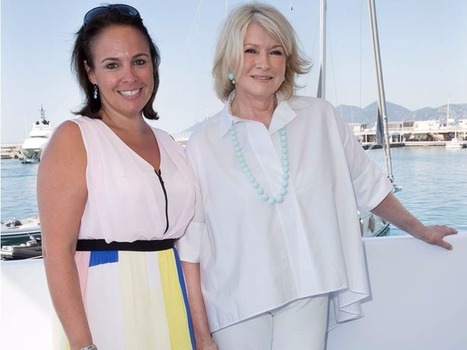


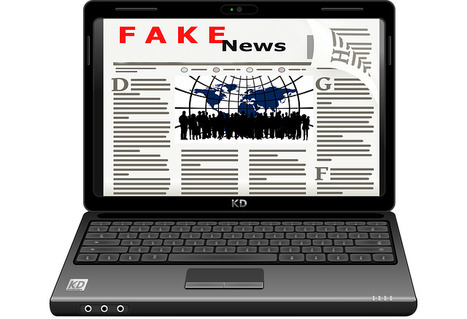

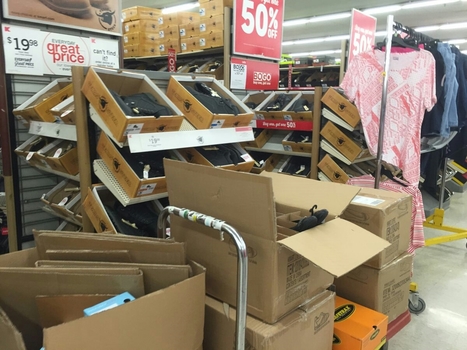

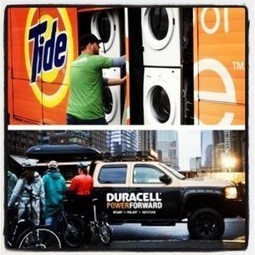






There is such a thing as "bad PR" and Uber is seeing the consequences.